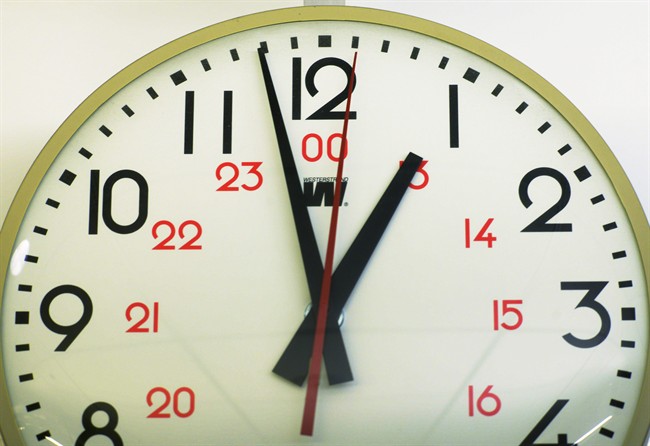New Year’s revelers in some parts of the world will have to hold off on popping the champagne just a little longer due to the addition of a leap second at 11:59 p.m. and 59 seconds on Dec. 31.

The International Earth Rotation and Reference Systems Service (IERS) , the body responsible for global timekeeping, announced in July that the leap second would need to be added to keep our planet’s rotation in line with atomic clocks.
Countries in western Europe, the United Kingdom and parts of West Africa will be among those affected.
READ MORE: A ‘leap second’ will be added to the end of 2016
The addition of a leap second is is required because the Earth’s rotation is far from clockwork — it can speed up or slow down due to various factors including the moon’s gravitational pull. This results in astronomical time — based on the length of a day — falling out of sync with atomic time, a more precise measure determined by 400 high-tech atomic clocks located in over 50 laboratories around the world.
This isn’t the first time a leap second has been added at the end of the year to prevent our timekeeping from going haywire. Twenty-six leap seconds have been inserted into the world’s clocks to date, with the first introduced on June 30, 1972, according to the IERS.

Get daily National news
READ MORE: Goodbye 2016! Majority of Canadians think life will be better in 2017
The most recent leap second was added on June 30, 2015, an intervention that didn’t escape the attentions of Last Week Tonight host John Oliver.
The addition of a leap second has the potential to throw computing systems into disarray, something Google works around through the use of what it calls ‘smeared time‘.
“Instead of adding a single extra second to the end of the day, we’ll run the clocks 0.0014% slower across the ten hours before and ten hours after the leap second, and ‘smear’ the extra second across these twenty hours,” Michael Shields, Technical Lead of Google’s time team, wrote in a Nov. 30 blog post.
Simply trying to add an extra second to operating system clocks has caused problems in the past, Shields noted.
The computing complications caused by leap seconds has led some people to call for their abolishment altogether. The International Telecommunication Union is slated to make a decision on the matter at a conference in 2023, according to a November 2015 statement
READ MORE: Time to say goodbye to the leap second? Countries mull ending atomic clock sync with Earth day
Given widespread complaints over a year littered with divisive politics, humanitarian crises, terror attacks and a conveyor belt of celebrity deaths, the leap second may not come as good news to people who can’t wait to see the back of 2016.
Canadians needn’t worry however — the leap second only applies to countries that use Coordinated Universal Time (UTC) as their standard time.








Comments
Want to discuss? Please read our Commenting Policy first.